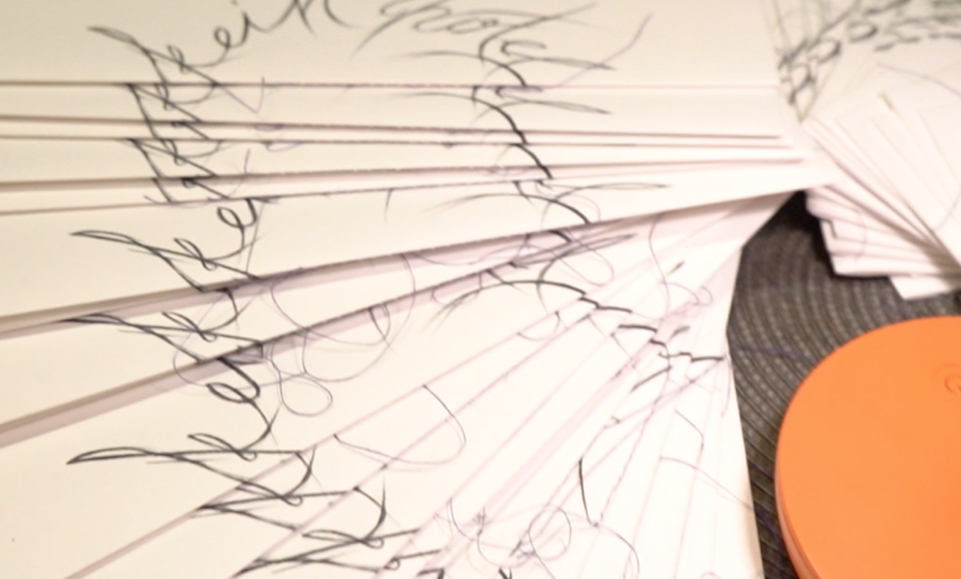And if this was to learn from and about cultural institutions, their modes of production, I must say that cultural production takes place in many more sites than just in institutions. It’s in the shortcuts we take, lapses, group chats, places with Wi-Fi, parking lots, Sunday dinners with disco lights in the kitchen. It’s in the friction, the comfort, the awkwardness of not knowing but still understanding, or at least trying to.
It took me five weeks to start referring to an apartment I barely unpacked in as my place. I’ve caught the rhythm almost effortlessly – I’ve walked the same streets, gone to the same bars, and seen the same faces almost daily. And it was a bit too convenient. But even with slipping into a kind of familiar routines, there was a quiet distance to remind me that I’m still just a guest in the city. Reality set in while on the way back. It usually takes me time to unpack, I’m horrible that way – sentimental, and a bit pathetic, yes – I like pretending I still live out of a suitcase, like I’ve just returned from somewhere. This time it took me only a day and a half; it was like ripping off a band-aid. Still, there’s something soothing in postponing. Then I realised that residency life is not real life.
Anyway, not to get too existential, but time really passed without permission; some moments got locked in the streets whose names I never learned, some disappeared between my home and Lumbardhi. In the last week, every day felt like the last one, so we made a voluntary obligatory agreement not to speak about our departure day, as talking about it would make it real.
There’s something escapist about going places – moving, even. Chasing something else, structured but not stable, real, but temporary, being in between – suspended, allowed to observe more than belong. But then there’s another thing: the city begins to recognize you, subtle at first, then more than it maybe should. That one is dangerously good. The fact that the girl behind the bar remembers your order before you say it, the man who serves you food every day starts laughing, knowing you’ll order the same thing again, the woman at the bakery says dobro jutro while she hands you your chocolate croissant. And yes, I might be romanticizing, and I guess it usually happens when you stay somewhere for a certain amount of time – and maybe that's it – we stayed long enough to pass the tourist mode, and so far from becoming local and I wonder, if we stayed, would it be overstaying our welcome? Do we owe something to this city?
Prizren wasn’t about being productive in the way that is usually expected – not in terms of outcomes or deliverables or measurable results. It was about attuning to the rhythms of another place, and letting that become part of how you make meaning. Conversations with Una, Maja, and Francisco, sharing our work-in-progress or sometimes just sharing time and space, became sort of integral to the process. We were lucky to have the support to work at our own pace, without pressure.
Cultural production, turns out, is not just what gets made — it’s also how it gets made, where, and by whom. It’s the micro-worlds and economies of meaning that form through encounters, routines, gestures, jokes that don’t translate, and blur the lines between work and life. But this cultural production doesn't exist outside the systems of cultural reproduction. Culture reproduces itself – institutions, tastes, and behaviors maintain existing social structures in often invisible ways: it’s in the kinds of things we learn to value, the spaces where we’re taught to speak, the confidence to take part. Here, there’s something that interrupts this reproduction. Or at least pauses it. Maybe that’s why it felt so important. Not just an escape from everyday life – but an escape from the usual rules, a temporary suspension of reproduction — that is a kind of cultural production, too. Maybe that’s what it should be – a soft system of care, not just a structure of output.
It was as if the place let us exist without the pressure to perform, and maybe that bit of Prizren traveled in my bag – to Prishtina, nearly missed the Munich flight, and landed back in Zagreb with no conclusion, no definite answers. Just more questions. That’s fine. Some cities are unfinished sentences. And some goodbyes are questions in disguise.
Hvala, Prizren.
